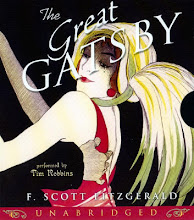 In the novel The Great Gatsby, there is a role of new money and old money, not a new form of currency, but those who are new to wealth, and those who have had it in their families for a long time. Both are in the same class of wealth, but new money and old money spend their wealth differently, and have different maturities while handling their money.
In the novel The Great Gatsby, there is a role of new money and old money, not a new form of currency, but those who are new to wealth, and those who have had it in their families for a long time. Both are in the same class of wealth, but new money and old money spend their wealth differently, and have different maturities while handling their money. The newly rich, or the new money, like Jay Gatsby, live in West Egg. "Fitzgerald portrays the newly rich as being vulgar, gaudy, ostentatious, and lacking in social graces and taste."(http://www.sparknotes.com/lit/gatsby/themes.html) Gatsby is a perfect example of this. Gatsby tries to be all flashy and impressive with his money, which is very irresponsible a
The newly rich, or the new money, like Jay Gatsby, live in West Egg. "Fitzgerald portrays the newly rich as being vulgar, gaudy, ostentatious, and lacking in social graces and taste."(http://www.sparknotes.com/lit/gatsby/themes.html) Gatsby is a perfect example of this. Gatsby tries to be all flashy and impressive with his money, which is very irresponsible a nd unwise. He drives a fancy car, a Rolls-Royce, has a monstrous mansion bu himself, and throws parties non-stop to impress people, and to try to lour Daisy back to him. He uses the newly wealth he has to do this, which he obtained from a life of crime, in the bootlegging business.
nd unwise. He drives a fancy car, a Rolls-Royce, has a monstrous mansion bu himself, and throws parties non-stop to impress people, and to try to lour Daisy back to him. He uses the newly wealth he has to do this, which he obtained from a life of crime, in the bootlegging business.The old money, peop
 le of East Egg, aren't as irresponsible with their wealth, and know how to handle what they have. "What the old aristocracy possesses in taste, however, it seems to lack in heart, as the East Eggers prove themselves careless, inconsiderate bullies who are so used to money’s ability to ease their minds that they never worry about hurting others"(http://www.sparknotes.com/lit/gatsby/themes.html) Daisy and Tom Buchanan are a perfect example of this selfishness. They both will simply move on, and leave the messes that they made for somebody else to clean up. They're both never satisfied, and cheat on one another. These East Eggers are no better than the irresponsible new money from West Egg.
le of East Egg, aren't as irresponsible with their wealth, and know how to handle what they have. "What the old aristocracy possesses in taste, however, it seems to lack in heart, as the East Eggers prove themselves careless, inconsiderate bullies who are so used to money’s ability to ease their minds that they never worry about hurting others"(http://www.sparknotes.com/lit/gatsby/themes.html) Daisy and Tom Buchanan are a perfect example of this selfishness. They both will simply move on, and leave the messes that they made for somebody else to clean up. They're both never satisfied, and cheat on one another. These East Eggers are no better than the irresponsible new money from West Egg.In conclusion, new money is less responsible, but despite that quality, people like Gatsby are caring and have a big heart, and actually do give a damn about other people. The old money knows how to handle their money, but being so used to that wealth are extremely selfish, and come off to be worse people, like Tom and Daisy Buchanan.
Sources: The Great Gatsby
Sparknotes.com
123helpme.com











 concerned excessively or exclusively with oneself: seeking or concentrating on one's own advantage, pleasure, or well-being without regard for others
concerned excessively or exclusively with oneself: seeking or concentrating on one's own advantage, pleasure, or well-being without regard for others















